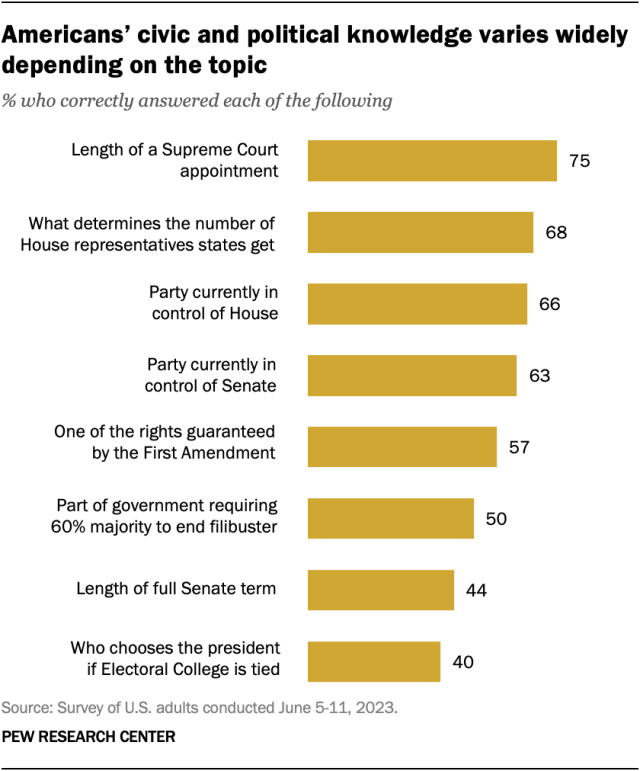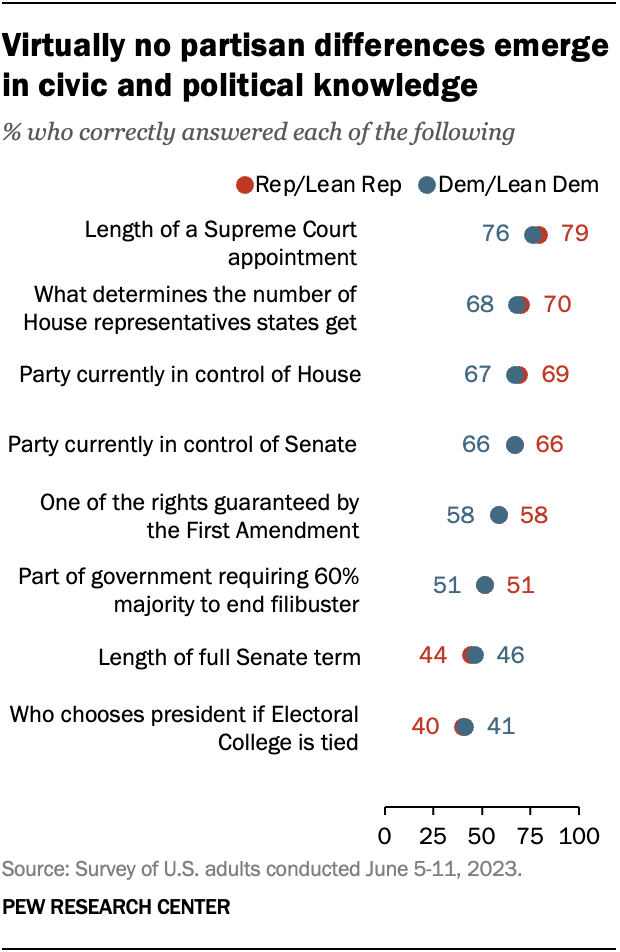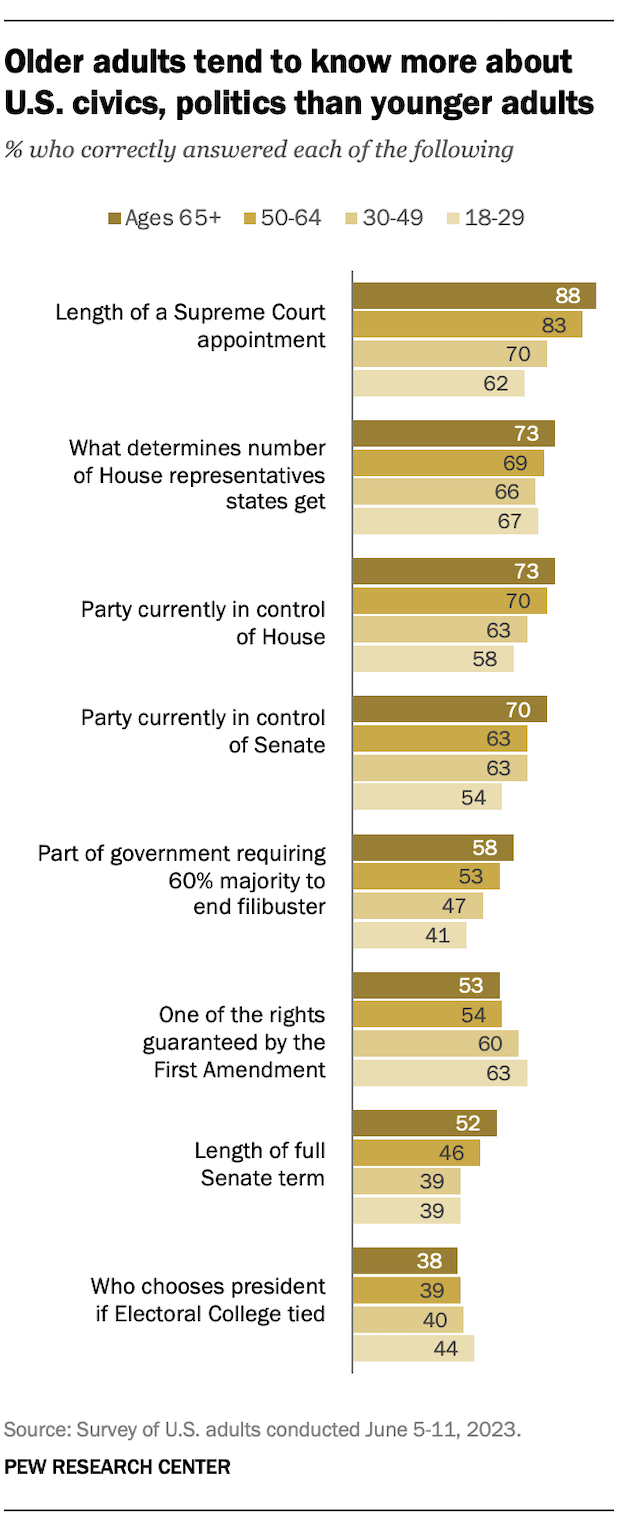How much do you know about the U.S. government? Take the Pew Research Center civics quiz and find out how much you know compared with the American public.
Americans’ knowledge of their government varies widely by topic. Majorities are aware of the length of Supreme Court appointments, how states’ representation in the House of Representatives is determined, which parties control the House and Senate, and one of the rights guaranteed by the First Amendment.
Fewer Americans correctly answer questions about the filibuster, the length of a Senate term and how a presidential election is decided in the event of a tie in the Electoral College.
Before reading further, take our U.S. civic and political knowledge quiz. For full question wording and correct answers, refer to the survey topline.
Pew Research Center conducted this analysis to understand what Americans know about their government. For this analysis, we surveyed 5,115 adults from June 5 to 11, 2023.
Everyone who took part in the survey is a member of the Center’s American Trends Panel (ATP), an online survey panel that is recruited through national, random sampling of residential addresses. This way nearly all U.S. adults have a chance of selection. The survey is weighted to be representative of the U.S. adult population by gender, race, ethnicity, partisan affiliation, education and other categories. Read more about the ATP’s methodology.
Here are the questions used for this analysis, along with responses, and its methodology.

Three-quarters of Americans are familiar with the length of a Supreme Court appointment. This question got the highest share of correct answers on our quiz.
A clear majority (68%) also knows how the number of representatives each state gets in the House is determined.
The public also generally knows who’s in control in Congress: 66% correctly identify which party has a majority in the House and 63% know which controls the Senate.
A smaller majority (57%) correctly identifies one of the rights the First Amendment guarantees, while half correctly answer what part of the government requires a 60% majority vote to end a filibuster.
On the other hand, fewer than half of Americans know the length of a full term of office for a U.S. senator (44%) or who chooses the president if there is a tie in the Electoral College (40%).
Partisanship and civic knowledge

Republicans and Democrats perform about equally well on these questions.
Equal shares of Republicans and Republican-leaning independents and Democrats and Democratic leaners correctly answer three questions:
- Which party is in control of the Senate
- One of the rights guaranteed by the First Amendment
- Which part of the government requires a 60% majority to end a filibuster
Among all eight items in the quiz, there is no greater than a 3 percentage point difference in the shares of Republicans and Democrats who answer correctly.
Age and civic knowledge

Older Americans are generally more likely than younger adults to answer the quiz questions correctly. For instance, 88% of adults ages 65 and older know the length of a Supreme Court appointment, compared with 62% of those ages 18 to 29.
However, older adults are somewhat less likely than younger adults to correctly answer questions about First Amendment rights and the tiebreaker for the Electoral College.
Note: Here are the questions used for this analysis, along with responses, and its methodology.
